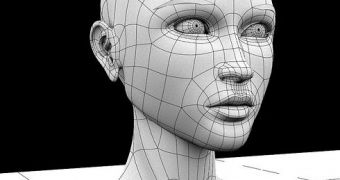Recognizing faces is what allows us to avoid embarrassing memory failures and to still be in touch with people we know. But understanding exactly how it works might help people who need to match names and faces perfectly and also it can improve facial recognition of dangerous people, like criminals or terrorists.
Just like for faces, different brain areas process bodies. Our face-perception is not totally intuitive, says Dr. Galit Yovel of Tel Aviv University's Department of Psychology, and this makes scientists wander how this information is combined into our brain, and how it is possible for separate face and body areas to give a whole body-image impression.
A certain area of our brain called the “fusiform gyrus” is capable of processing information about human or animal faces, and it helps us recognize them and interpret facial expressions. Dr Yovel is carrying out a research that tries to find out what is it that makes this area of the brain so special. She combines cognitive psychology with brain imaging and electrophysiology, to examine the way the brain processes information about faces. She found out that people recognize more easily faces with which they interact more often, in important circumstances.
She also says that the inability to recognize faces is not so rare, as 2% of all people are “face blind”. This handicap, also known as prosopagnosia, could be limited if her research is successful. This way people could train to make the difference between faces and would be able to recognize faces of their loved ones for example.
“Faces are important,” says Dr. Yovel. “We meet so many people every day, on the street or at work, and should know whether or not each face is important to us. In principle, faces are very similar to one another. That's probably why we've evolved these complex and specialized face areas in the brain ― so that we can more accurately discriminate among the countless faces we encounter throughout our lives.”
Dr. Yovel began her studying of the neurological basis of face recognition while she was a post-doctoral student at MIT. She published her most recent findings on the brain's face-processing mechanisms in the Journal of Neuroscience and Human Brain Mapping, according to e! Science News.

 14 DAY TRIAL //
14 DAY TRIAL //